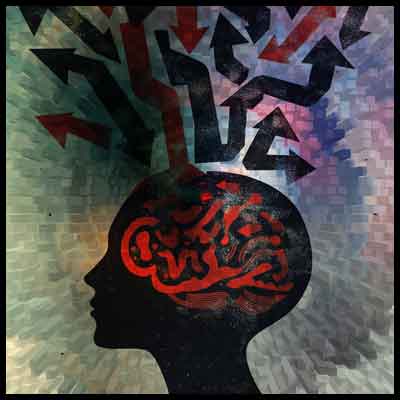So what the f**k is a “Mindplex”?
Well, firstly — as you can see — Mindplex is a fun/funky new future-oriented magazine and media site that some of my crazy colleagues and I are in the process of launching as a spinoff of SingularityNET, our AI-meets-blockchain project.
Read, view, comment, contribute, enjoy! Expand your mind and help expand ours and everybody else’s. …
Enter the Mindplex …
Yes, yes, an online magazine. And we’re aiming for an insanely great one — news articles, stories, images, videos and more … comments on these creations, comments on comments, and so forth.
We have a great editorial team, led by Senior Editor Amara Angelica, who edited Kurzweilai.net for 18 years and helped Ray Kurzweil create The Singularity Is Near and other works. AGI, life extension, nanotech, blockchain, robotics, consciousness, you name it. …
New open-source tools
But we’re also aiming at something more: To use the zine as a platform for gradually rolling out and experimenting with a series of exciting new tools, leveraging blockchain or AI or both.
Most of these tools will also be mde available open-source for others to use and made available via decentralized SingularityNET hosting for other media sites to use via API.
The goal is to make Mindplex a showcase for new processes and dynamics, with the capability of shifting the online mediaverse as a whole from its current convoluted and largely counterproductive condition into a majorly amazing force for both human and Singularitarian good.
A reputation system
One of the first things we’ll be experimenting with is a complex-systems-theory-based reputation system that leverages crypto tokens to manage creator and user reputations.
Interaction between reputation and rating is important here, as is complete transparency to users regarding how and why the system’s algorithmic judgments are being made.
Existing media sites like Reddit and Steemit are object lessons in how the nitty-gritty of reputation and rating algorithms can very concretely impact the nature of content in an online ecosystem. It’s essential that — with the active involvement of the community — we get this some kind of right.
New AI-based experiments
Beyond this, you can expect an ongoing flow of new tech/human experiments. Part of the fun will be the surprise of learning and reinventing as we go, along with the community, But to mention just a few things we’ve been playing with:
- AI dialogue systems for chatting with readers and answering questions about media posted on the site.
- AI-based interactive content-creation tools — focused initially on creating interactive science fiction that explores the potential implications and uses of new technologies described and discussed on the site.
- AI-generated memes and comics
- Collaboration with SophiaDAO, another amazing SingularityNET ecosystem project, on immersive virtual-world scenarios related to Mindplex content.
- Leveraging TWIN Protocol technology, allowing users to create their own digital twins and allowing others to experience their twins’ reactions to Mindplex content.
- Unique mathematical tools that allow the user to create visual and music art, based on the user’s own DNA sequence.
Variations on the Theme of “Mindplex”
But why are we launching such a site at this time … what’s the underlying philosophy and mission?
Well, I’m glad you asked…
“Mindplex” is a term I introduced in 2003 or so when I was looking for a word to describe a mind that’s more unified than human society, but less unified than an individual human mind.
Imagine a group of best friends in the year 2050 who are all supplied with brain-chip implants and share their every thought and feeling with each other via “Wi-Fi telepathy.”
Such a bestie group will be almost — but not quite — a sort of “group mind” … something like a Borg mind, but with more loose/wild self-organization and without the fascist flavor.
Another kind of mindplex
My neuroscientist collaborator Gabriel Axel and I picked up the term again in 2019 when we were writing a paper on non-ordinary states of consciousness — including states where multiple people feel fused into a sort of mutually experiencing whole.
Fast forward to 2021: I found myself collaborating with an amazing team to create a tokenomics-and-AI-fueled futurist media project — and I realized that what we were aiming to curate was precisely another form of mindplex.
Could we use AI and blockchain to create a self-organizing body of content, intelligence and understanding? One centered around the theme of transformational technology and the human and transhuman future?
One that would include insights, respect, and reward for the autonomy of the individual people contributing, but also display an emergent vision and comprehension beyond the scope of any one human individual?
In a way, this is what any subculture does. But historical human cultures didn’t have access to the array of technologies at our present disposal, which have the potential to make communication and information dynamics more intense and emergence more emphatic.
The mind is only free for those who own their online selves
The Internet has been an unabashedly awesome thing for software programs and robots. For human beings, it’s been a mixed bag — with huge positives and chilling negatives, and a whole lot of aspects that are just plain confusing. This has been true for the impact of the internet on so many aspects of human life, and definitely in the areas of media and social interaction.
A. J. Liebling’s statement, “Freedom of the press is guaranteed only to those who own one,” is no longer so relevant. Instead, we have a situation where “the ability to reliably direct people’s attention is only available to those with a lot of money to feed AI marketing engines.”
Almost anyone in the developed world — and an increasing subset of the developing world — can now post their thoughts, images, sounds or videos online … and their commentary on the works of others. But getting other folks to notice your productions or comments is a whole different matter.
Getting paid to produce high-quality content is also increasingly difficult as the pool of freely offered content increases in size, depth and diversity. More of the money in the mediasphere goes to those offering services that sell advertisements to readers of said freely offered content.
Finding like-minded folks — or at least like-opinioned folks regarding particular classes of issues — gets easier and easier as the technology for clustering people into similarity groups gets more and more refined, due to its utility for driving targeted marketing.
But finding interesting people whose mix of similar and divergent perspectives can drive one toward fundamental growth is much harder and has been a serious focus because it’s more difficult to monetize.
Tribal mind lifeforms
The proto-mindplexes that are most habitually forming on today’s internet are often troublingly tribal in nature — like narrow-minded, collective-mind lifeforms creating their own insular information metabolisms on the scaffolding of social media filter bubbles.
The rare individuals able to earn a living creating media mostly do so by playing, in a highly focused way, to the most differentiating beliefs of particular online tribes.
Today’s slogan should perhaps be more like “the mind is only free for those who own their online selves” — i.e., they own their data, metadata and online persona.
Because if you don’t own and control those aspects of your online presence, your mind is being constantly influenced and controlled by the information shown to you by whoever does have this ownership and control.
Decentralized, democratized media
Of course, “freedom” in an absolute sense is a philosophical conundrum that mixes poorly with physical and social realities. But what we’re talking about here is practical causal agency over what one sees, does and thinks.
Increasingly, this causal agency is being handed over to large corporations with their own financial growth agendas, rather than maintained individually or thoughtfully granted to mindplexes or other social groups we have intentionally entered into and co-formed.
Case in point: SingularityNET was formed to decentralize and democratize AI. And this provides a big piece of what’s needed to decentralize, democratize, and end Big Tech hegemony over media (social, anti-social and otherwise). But it’s not the whole story.
Dynamic intelligent mindplexes
Decentralized democratized media needs decentralized, democratized AI, deployed appropriately alongside other media-focused tools and mechanisms. This is how we can create online media that accentuates the positive and palliates the negative aspects of the Internet we experience today.
And it’s how we can move forward to foster the creation of dynamic, intelligent mindplexes that transcend tribalism, help us grow, connect and expand our consciousness, and self-transform in unexpectedly positive and glorious ways.
Let us know your thoughts! Sign up for a Mindplex account now, join our Telegram, or follow us on Twitter.


.png)

.png)


.png)







15 Comments
15 thoughts on “The Mindplex Awakens!”
There is so many impressive work but this is great ?
🟨 😴 😡 ❌ 🤮 💩
🟨 😴 😡 ❌ 🤮 💩
🟨 😴 😡 ❌ 🤮 💩
🟨 😴 😡 ❌ 🤮 💩
🟨 😴 😡 ❌ 🤮 💩
🟨 😴 😡 ❌ 🤮 💩
🟨 😴 😡 ❌ 🤮 💩
🟨 😴 😡 ❌ 🤮 💩
🟨 😴 😡 ❌ 🤮 💩
🟨 😴 😡 ❌ 🤮 💩
🟨 😴 😡 ❌ 🤮 💩
🟨 😴 😡 ❌ 🤮 💩
🟨 😴 😡 ❌ 🤮 💩
🟨 😴 😡 ❌ 🤮 💩
🟨 😴 😡 ❌ 🤮 💩